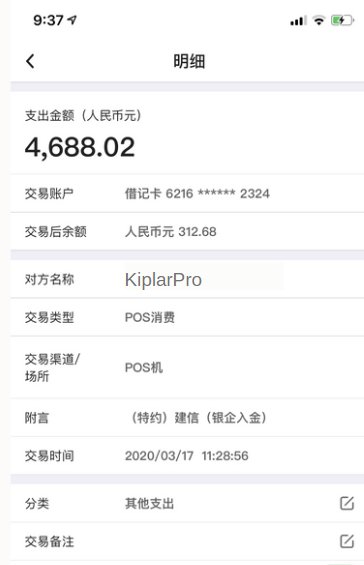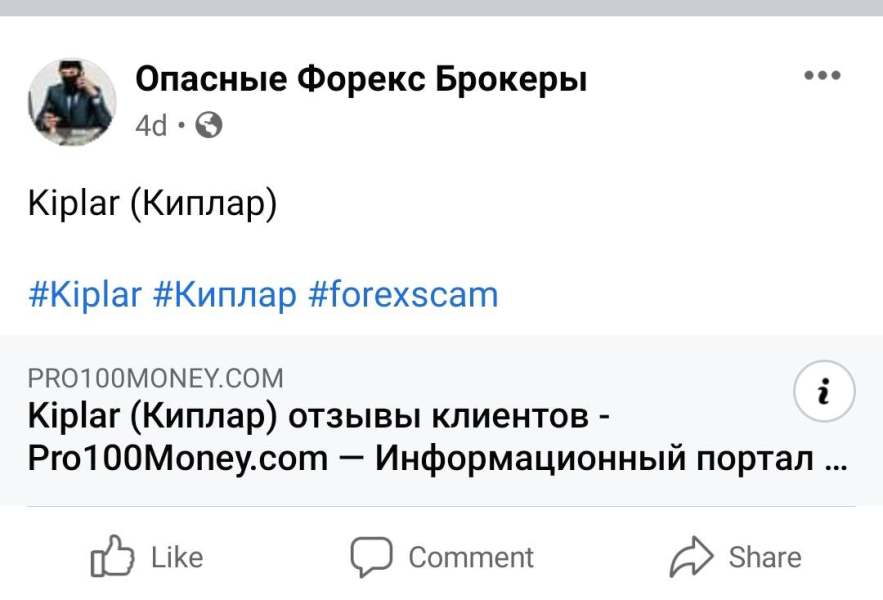Kiplar 2025 Review: Everything You Need to Know
Kiplar, an offshore forex broker based in Saint Vincent and the Grenadines, has garnered mixed reviews from users and experts alike. While it offers a wide array of trading instruments and the potential for high leverage, concerns about its regulatory status and withdrawal practices raise red flags for potential traders.
Note: It is crucial to recognize that Kiplar operates under different entities across regions, which can affect its regulatory oversight and user experience. This review is based on a comprehensive analysis of various sources to ensure fairness and accuracy.
Ratings Overview
How We Score Brokers: Our scoring system evaluates brokers based on user feedback, expert opinions, and factual data on account conditions, fees, and overall user experience.
Broker Overview
Kiplar was established in 2021 and is registered in Saint Vincent and the Grenadines. It operates a proprietary trading platform known as Kip Trader, alongside integration with MetaTrader 5 (MT5). The broker offers access to a diverse range of trading instruments, including over 50 forex currency pairs, commodities, stocks, and indices. However, Kiplar lacks regulation from major financial authorities, which raises significant concerns regarding the safety of client funds.
Detailed Analysis
Regulatory Landscape
Kiplar operates in an unregulated environment, which is a significant concern for potential traders. According to multiple sources, including WikiFX, the broker is not listed with any reputable regulatory body, such as the FCA or ASIC. This lack of oversight means that traders have limited recourse in the event of disputes or issues with withdrawals. The absence of regulation is a common characteristic of many offshore brokers, which often leads to higher risks for investors.
Deposit and Withdrawal Options
Kiplar requires a minimum deposit of $250 to open a trading account. According to ForexBrokerListing, the broker accepts various payment methods, including credit/debit cards and bank transfers. However, the lack of clarity regarding withdrawal fees and processing times can be problematic. Many users have reported difficulties in withdrawing their funds, which is a common complaint against unregulated brokers. This aligns with findings from Global Fraud Protection, which highlight that Kiplar reserves the right to cancel withdrawal requests at their discretion.
Account Types
Kiplar offers five different account types, ranging from the Student Account with a $250 minimum deposit to the VIP Account, which requires a significantly higher investment. Each account type provides varying levels of access to features such as individual trading strategies and market analysis tools. However, many reviews, including those from ForexPeaceArmy, indicate that the benefits associated with higher-tier accounts may not justify the substantial deposits required.
Trading Costs and Leverage
The broker provides leverage of up to 1:400, which can be attractive to traders looking to maximize their trading potential. However, the trading costs, including spreads and commissions, are not transparently disclosed. Sources like ForexBrokerListing suggest that the lack of transparency regarding costs is a significant drawback for traders, as they may encounter unexpected expenses that can erode profits.
Customer Support and Service
Customer support at Kiplar has received negative feedback, with many users reporting slow response times and limited availability. While the broker offers support through various channels, including live chat and email, the overall experience has been described as inadequate. According to Trader Magazine, the support team often struggles to address user inquiries promptly and effectively.
Final Ratings Overview
Conclusion
In summary, the Kiplar review reveals a broker that presents itself with attractive features but is marred by significant concerns regarding regulation, customer support, and withdrawal practices. The lack of oversight and transparency in trading costs makes it a risky choice for traders. Potential investors are strongly advised to consider these factors and explore regulated alternatives that offer more robust protections for their funds.












